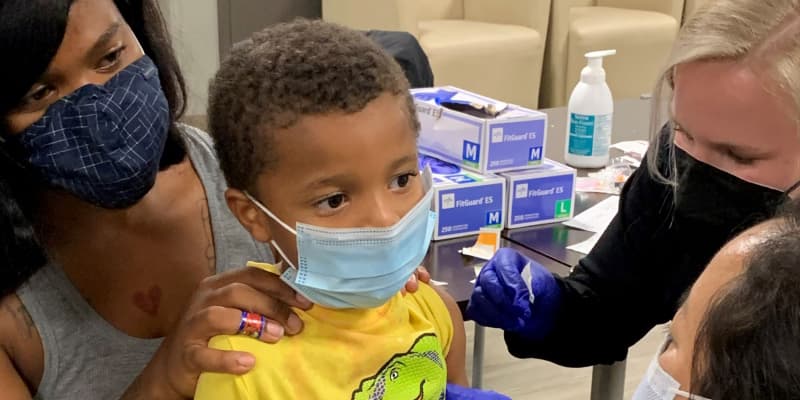
What is in a name? We use names in our culture to create a legacy and they follow us even after our lifetime. Parents mull over their child’s name for months. Family histories are traced through a common name. Names are valued because they represent where things come from and the intention for what is to come. When deciding on a name for our Center, we wanted to choose a name that best represents our work, respects the population we are caring for and moves the lexicon in this arena toward bias-free language.
The word “homeless” is ingrained in our society today, but widely misunderstood and has been used derisively in popular culture. According to the Department of Housing and Urban Development (HUD), someone who does not have a “fixed, regular, adequate nighttime residence” is homeless. However, this is just one of four categories of individuals experiencing housing insecurity as defined by HUD, which also includes people fleeing from intimate partner violence, unaccompanied youth and those in danger of losing their home in the next 14 days. The true number of people experiencing housing insecurity is difficult to quantify since people who are living with their family, “couch surfing” or “doubled-up” are not counted in traditional data collection. We aim to serve all people experiencing housing insecurity, and the term “homeless” does not accurately describe the housing crisis the people we serve are experiencing.
Those with the lived experience of housing insecurity are reticent to consider themselves homeless because they might be without permanent or stable housing and still have a place you consider a home. A tent is a home, a car is a home, a loved one’s apartment is a home. Furthermore, the use of the term “homeless” in our name could be a barrier to access for individuals we hope to serve, which goes against our mission.
Housing insecurity refers to a spectrum of experiences. When the public thinks of someone experiencing homelessness, the word could conjure images of someone panhandling on the street. This is only one small subset of the larger population of individuals who are housing insecure. People go to school, work, date — all while experiencing housing insecurity. This group is diverse, and each person’s experiences vary widely. Consider a veteran who works in construction by day and sleeps in an emergency shelter at night; a woman who works at a bank, sees her children in the evenings at their grandparent’s home and sleeps in her car at night; a child who is in elementary school and walks home to a two-bedroom apartment where he lives with extended family members and shares a bed with two cousins.
We also want to make it clear that the issue of people experiencing housing insecurity is a societal one, not a personal one. The United States can and should provide affordable housing to all people. There is a shortage of affordable housing as well as a shortage of well-funded housing programs that serve people out of beneficence rather than profit.
The Center to Transform Health and Housing strives to inspire, challenge and evoke hope and excitement about the possibility of being an agent of change. We chose the word “transform” because it involves taking action. We are changing the way health care is delivered to those who are experiencing housing insecurity, we are championing their rights to housing and we are bringing together different organizations with the shared goal of improving the lives of those whom society has failed. Our goal is to use our education, knowledge and platform to elevate the voices of individuals who are housing insecure and effectively break down the barriers we see so often in our community. Too many of the most valuable voices in public discourse are neither heard nor respected. By having those with lived experience codesign this work, we can ensure the most instrumental voices are heard so they can inform their own care.
Housing is health care, and it is our responsibility to meet our clients wherever they are so that their health care can be optimized, regardless of their housing status. With the help of communities, people with lived experience and partner organizations, the Center to Transform Health and Housing will move forward to ensure barriers to health equity are addressed and it will forge a path so the individuals we serve can thrive.